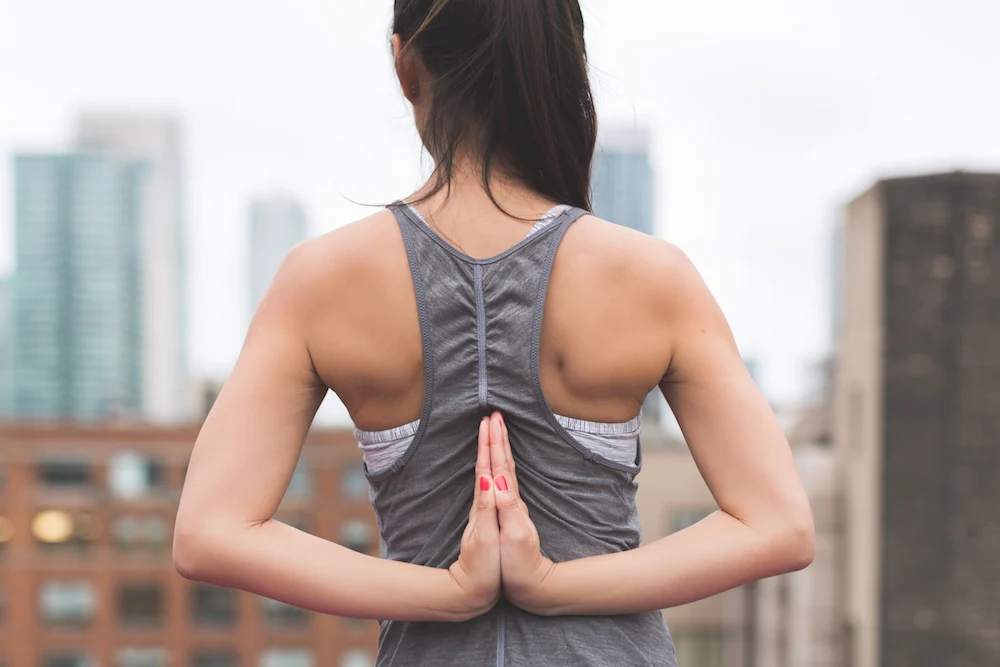Make Yoga a Part of Your Addiction Treatment

Regardless of where you go for addiction treatment, you can expect to participate in group and individual counseling, be involved in some form of a 12-Step group and receive relevant health care. These programs are the foundation of addiction treatment, providing the tools you need to stay continuously sober and lead a healthy life.
However, these aren’t the only ways to treat addiction and enhance recovery. Holistic therapies, including yoga, have recently become more commonly used as a way to complement other treatment modalities.
What is yoga?
Yoga is a form of physical exercise that uses different poses to focus on all aspects of the body, mind and soul. The inhale and exhale of the breath is used to guide the body through physical poses that focus on a number of different things, including:
- Flexibility;
- Balance;
- Coordination;
- Strength and stamina;
- Self-awareness.
Meditation is also a part of yoga and involves undistracted awareness and focus, whether on your breath, bodily sensations or thoughts. By working the body and using the breath as a cue for movement, or flow, into the next pose, yoga becomes crucial for relaxing the body, maintaining a presence of mind and even reducing anxiety.
What are the benefits of yoga for addiction recovery?
Yoga is well known for its physical benefits, such as pain relief, improved sleep and increased energy. Though these health improvements certainly aid in recovery, yoga is for more than just exercise. Yoga and meditation connect you with your body and mind, a tool that is essential in learning to identify and manage triggers. In addition, they result in the following emotional developments:
Stress management
When you experience stress or other negative feelings, you may be tempted to return to addictive substances or behaviors. Yoga teaches you a safe and positive way to deal with stress. Breathing deeply helps you calm down and refocus your mind and physical exercise releases endorphins.
Mindfulness
Yoga and meditation teach you how to be present to your body in a non-judgmental, observatory way. This presence of mind is called mindfulness and will help ground you in reality in a peaceful way. The purpose of addiction is to escape reality, whereas the purpose of mindfulness is to be fully present and appreciative of your reality.
Self-compassion
Yoga and meditation invite emotional healing, a process that is both painful and freeing. This is where self-compassion plays a role. You learn how to soothe yourself in a healthy way and provide for your needs in a way that doesn’t lead you toward addiction-driven habits. As you practice letting yourself feel all emotions, you’ll better be able to love, understand and forgive yourself.
Neurological repair
Humans can rewire their brains over time through habits and life choices. Yoga and meditation allow you to turn healthy thoughts and actions into new neurological connections so they become your new mental norm. In other words, the damage done to the brain through addiction can experience recovered through yoga.
Mental health treatment
Yoga and meditation can reduce depression, anxiety, and other mental health issues, with the possibility of decreasing your need to rely on medication. Yoga may be especially beneficial when treating co-occurring disorders.
These benefits will help you come to know yourself and become comfortable in your own mind and body. This self-love brings peace and contentment, eliminating your need to cope through unhealthy methods.
Is yoga for me?
While there might be a stereotypical image surrounding yoga, it’s actually true that yoga is for everyone. Each person, whether battling active addiction or in the final stages of outpatient treatment, can benefit from the neurological, physical and emotional benefits yoga offers. In fact, yoga is an optimal solution for those wanting physical exercise and a peaceful, relaxing environment all tied into one.
Yoga and addiction recovery
Healing an addiction is more than just ending the reliance on substances. It’s about resetting one’s frame of mind, becoming self-aware in order to avoid triggers and healing the body from the inside out. While traditional methods of talk therapy and support groups are vital aspects of this process, holistic methods like yoga and mindfulness also play an active role.
To boost your recovery journey by adding yoga to your treatment plan, consider the holistic therapy programs at Pyramid Healthcare. Call our offices for more information anytime at 888-694-9996.
Regardless of where you go for addiction treatment, you can expect to participate in group and individual counseling, be involved in some form of a 12-Step group and receive relevant health care. These programs are the foundation of addiction treatment, providing the tools you need to stay continuously sober and lead a healthy life.
However, these aren’t the only ways to treat addiction and enhance recovery. Holistic therapies, including yoga, have recently become more commonly used as a way to complement other treatment modalities.
What is yoga?
Yoga is a form of physical exercise that uses different poses to focus on all aspects of the body, mind and soul. The inhale and exhale of the breath is used to guide the body through physical poses that focus on a number of different things, including:
- Flexibility;
- Balance;
- Coordination;
- Strength and stamina;
- Self-awareness.
Meditation is also a part of yoga and involves undistracted awareness and focus, whether on your breath, bodily sensations or thoughts. By working the body and using the breath as a cue for movement, or flow, into the next pose, yoga becomes crucial for relaxing the body, maintaining a presence of mind and even reducing anxiety.
What are the benefits of yoga for addiction recovery?
Yoga is well known for its physical benefits, such as pain relief, improved sleep and increased energy. Though these health improvements certainly aid in recovery, yoga is for more than just exercise. Yoga and meditation connect you with your body and mind, a tool that is essential in learning to identify and manage triggers. In addition, they result in the following emotional developments:
Stress management
When you experience stress or other negative feelings, you may be tempted to return to addictive substances or behaviors. Yoga teaches you a safe and positive way to deal with stress. Breathing deeply helps you calm down and refocus your mind and physical exercise releases endorphins.
Mindfulness
Yoga and meditation teach you how to be present to your body in a non-judgmental, observatory way. This presence of mind is called mindfulness and will help ground you in reality in a peaceful way. The purpose of addiction is to escape reality, whereas the purpose of mindfulness is to be fully present and appreciative of your reality.
Self-compassion
Yoga and meditation invite emotional healing, a process that is both painful and freeing. This is where self-compassion plays a role. You learn how to soothe yourself in a healthy way and provide for your needs in a way that doesn’t lead you toward addiction-driven habits. As you practice letting yourself feel all emotions, you’ll better be able to love, understand and forgive yourself.
Neurological repair
Humans can rewire their brains over time through habits and life choices. Yoga and meditation allow you to turn healthy thoughts and actions into new neurological connections so they become your new mental norm. In other words, the damage done to the brain through addiction can experience recovered through yoga.
Mental health treatment
Yoga and meditation can reduce depression, anxiety, and other mental health issues, with the possibility of decreasing your need to rely on medication. Yoga may be especially beneficial when treating co-occurring disorders.
These benefits will help you come to know yourself and become comfortable in your own mind and body. This self-love brings peace and contentment, eliminating your need to cope through unhealthy methods.
Is yoga for me?
While there might be a stereotypical image surrounding yoga, it’s actually true that yoga is for everyone. Each person, whether battling active addiction or in the final stages of outpatient treatment, can benefit from the neurological, physical and emotional benefits yoga offers. In fact, yoga is an optimal solution for those wanting physical exercise and a peaceful, relaxing environment all tied into one.
Yoga and addiction recovery
Healing an addiction is more than just ending the reliance on substances. It’s about resetting one’s frame of mind, becoming self-aware in order to avoid triggers and healing the body from the inside out. While traditional methods of talk therapy and support groups are vital aspects of this process, holistic methods like yoga and mindfulness also play an active role.
To boost your recovery journey by adding yoga to your treatment plan, consider the holistic therapy programs at Pyramid Healthcare. Call our offices for more information anytime at 888-694-9996.







